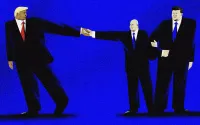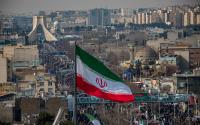23 March 2005Jeff Mason
European Union leaders have backed a goal for ambitious cuts in greenhouse gases by 2020 but dropped a longer-term target for 2050, despite support from environment ministers earlier this month.
The 25 ministers agreed that developed nations should pursue cuts of heat-trapping gases of 15-30 percent by 2020 and 60-80 percent by 2050 compared with levels set in the Kyoto Protocol, which uses 1990 as a base in most cases.
But EU heads of state and government omitted the 2050 goal from an agreed statement after a two-day summit in Brussels, the text showed, while keeping the 2020 target.
They said longer-term targets should be considered "in the spirit" of the ministers' decision. "These reduction ranges will have to be viewed in the light of future work on how the objective can be achieved, including the cost-benefit aspect."
Environmentalists said Germany and Austria, traditionally supportive of green causes, had blocked the long-term goal.
"It's always Germany and Austria who are the stronger allies of progressive climate action and then all of a sudden their coal industry has rebelled and they're blocking the rest of the EU," said Greenpeace climate expert Mahi Sideridou.
But Greenpeace said it was pleased that the leaders supported the 2020 target while also backing an EU aim to keep worldwide temperature increases below 2 degree Celsius compared with pre-industrial levels.
"It's the first time that you've got the leaders of the EU who say basically our efforts from now on to stop climate change should be guided by staying below 2 degrees," Sideridou said.
The European Union is widely considered a global leader in the fight against climate change.
In January it launched an emissions trading scheme, in which industry can trade the right to release carbon dioxide (CO2), one of the main greenhouse gases. One expert said, however, that dropping the 2050 goal was a bad sign to the fledgling market.
"By taking the target away you give an ambivalent signal to the carbon trading community," said Dr. Benito Müller of the Oxford Institute for Energy Studies.
"These targets are quite important for the market but they can only fulfil their promise if they are seen to be here to stay."
The leaders' decisions set the stage for further international climate change talks within the Kyoto framework, slated to take place later this year. They also mean the EU itself will need to implement tough measures for post 2012, when the first stage of Kyoto ends.
"The EU now has to speedily implement policies and measures to not (only) fully comply with Kyoto targets, but also to comply with this longer term objective of 2020," said Stephan Singer, climate change expert at environmental group WWF.






